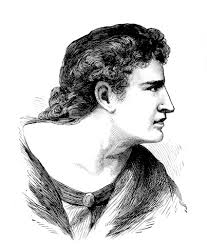Why Should/Shouldn’t My Church Embrace Change? Part XXIII
If the five fold is to be a viable option for church structure, the Church will have to be a fluid, living organism for the Priesthood of Believers. The five fold must be viewed as passions, desires, and points of view by common believers in Jesus. Formal structures are not important; the building up and maintaining of peer relationships in Jesus is. If you pattern building a church solely on the blueprint of a five fold structure, it will fail, but if it is built upon the strength of five fold’s diverse passions who support, encourage, and stand by each other by willing laying down their lives for one another, the five fold will be an effective, powerful force of transformation unlike the Church has seen since the first century. Let’s examine each of the five passions, desires, and points of view.
 Evangelist: An evangelist, who carries the weight of a sin depraved, dying world who needs Jesus, majors in “birthing”. They seek and serve to save anyone who doesn’t have a personal relationship with Jesus. Often new converts exhibit evangelistic zeal because of their newly found joy and peace in Jesus and want others to experience it.
Evangelist: An evangelist, who carries the weight of a sin depraved, dying world who needs Jesus, majors in “birthing”. They seek and serve to save anyone who doesn’t have a personal relationship with Jesus. Often new converts exhibit evangelistic zeal because of their newly found joy and peace in Jesus and want others to experience it.
 Pastoral/Shepherd: The shepherd, who majors in nurturing and care, loves to do what Jesus told Peter to do, “Feed my sheep!” (John 21:17) Just like an evangelist wants to hang out with the lost, shepherds love to hang out with the sheep. They eat, sleep, walk, and talk to their sheep giving them guidance, directions, and keep them spiritually healthy to grow. They are people persons who think of others before themselves. There is no formula to be a good shepherd; all one needs is to care, love the unloved, hug the unhugable, accept the rejected, and invite the outcast.
Pastoral/Shepherd: The shepherd, who majors in nurturing and care, loves to do what Jesus told Peter to do, “Feed my sheep!” (John 21:17) Just like an evangelist wants to hang out with the lost, shepherds love to hang out with the sheep. They eat, sleep, walk, and talk to their sheep giving them guidance, directions, and keep them spiritually healthy to grow. They are people persons who think of others before themselves. There is no formula to be a good shepherd; all one needs is to care, love the unloved, hug the unhugable, accept the rejected, and invite the outcast.
 Teacher: When we think of a Christian teacher, we think of a Bible scholar, but that is our Western mindset. The Jewish mindset is the Lamad method of “experiencing” what you learn from the heart, not the mind. Jesus taught the Lamad by walking with his twelve disciples teaching them how to “experience” the kingdom of God. That is why he taught in parables. Five fold teacher use both the academic and experiential approaches.
Teacher: When we think of a Christian teacher, we think of a Bible scholar, but that is our Western mindset. The Jewish mindset is the Lamad method of “experiencing” what you learn from the heart, not the mind. Jesus taught the Lamad by walking with his twelve disciples teaching them how to “experience” the kingdom of God. That is why he taught in parables. Five fold teacher use both the academic and experiential approaches.
 Prophet: A prophet’s desire is draw near to God, so listening to and being obedient to the voice of the Holy Spirit is central. He longs to be in the flow of the Holy Spirit in whom he has put his trust. He cherishes making the Logos, written, Word the Rhema, living, Word. The Word without spiritual life becomes legalistic, bringing bondage. Jesus gave his “life” in order to release the “spirit life” in man from any bondage.
Prophet: A prophet’s desire is draw near to God, so listening to and being obedient to the voice of the Holy Spirit is central. He longs to be in the flow of the Holy Spirit in whom he has put his trust. He cherishes making the Logos, written, Word the Rhema, living, Word. The Word without spiritual life becomes legalistic, bringing bondage. Jesus gave his “life” in order to release the “spirit life” in man from any bondage.
 Apostle: An apostle majors in networking believers and “seeing over” what the Holy Spirit is already doing. Unlike hierarchal leadership, a believer with an apostolic passion is never “above” those he “serves”, but next to them as equal peers in Jesus. He is to never “lord over them,” but kneel in service by washing their feet. Jesus did this as an example for us. A believer with an apostolic point of view never controls anyone because he is never ‘in control”, the Holy Spirit is! He just “serves” as a shepherd to the Church!
Apostle: An apostle majors in networking believers and “seeing over” what the Holy Spirit is already doing. Unlike hierarchal leadership, a believer with an apostolic passion is never “above” those he “serves”, but next to them as equal peers in Jesus. He is to never “lord over them,” but kneel in service by washing their feet. Jesus did this as an example for us. A believer with an apostolic point of view never controls anyone because he is never ‘in control”, the Holy Spirit is! He just “serves” as a shepherd to the Church!
In all five of these giftings, the Holy Spirit must be in control, for He does the work through us; that is what is unique about the five-fold.